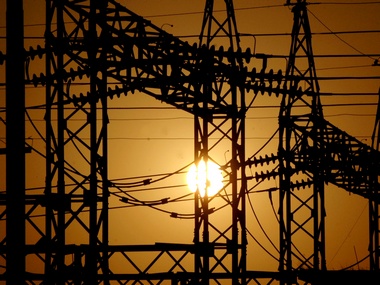As one of the consumers to benefit from the new state government’s decision to slash power tariffs in Delhi, I should really not be complaining. The new AAP government claims power tariffs for users in the lowest usage slab will be slashed by half from 1 January and this can only mean good news. But will the news remain good for long unless AAP succeeds in proving its allegations that the power distribution companies used corrupt practices to cook up their books of accounts in the past? More to the point, will getting their books of accounts audited solve this problem for good?
[caption id=“attachment_1318161” align=“alignleft” width=“380”]  Representational image. Reuters[/caption]
There are two issues here which need to be discussed in addition to auditing the discoms’ books of accounts:
- The disparity between rise in power purchase costs of these companies over the last 11 years compared to the tariff increase during the same period. Power purchase costs are 85 percent of total discoms’ costs.
- The inability of the state government, which is a 49 percent stake holder in each of the three distribution companies, to check what is going on at their respective joint ventures.
Put simply, this means that while the cost at which these companies bought power rose by almost 300 percent or three times in the last 11 years, tariff increase was only to the tune of 70 percent. Either the state government should have subsidized some of the gap or else tariff increase should actually have been more! Yes, you read it right. The experts say these discoms are already at a disadvantage.
Secondly, why did the state government representatives remain quiet for 11 long years if they felt that something was not right in the way the discoms were presenting their financials?
Impact Shorts
More ShortsThis is perhaps where the AAP’s allegations of corruption against the previous government could hold some ground.
Speaking to Firstpost, DERC Chairman P D Sudhakar said he had recommended a CAG audit of discoms in August 2011, but not because DERC smelled a rat. “We do not audit discoms’ books of accounts so how can we know if there is anything wrong there. We only sought a CAG audit because there was widespread public demand and we have to safeguard interests of all stakeholders”
Sudhakar agreed that while power purchase costs have increase by 300 percent in 11 years, tariff increase has only been 70 percent. But again he pleaded ignorance about increase in power costs, saying these are determined by the Central Electricity Regulatory Authority, the DERC has no role in it. Sudhakar did not answer a question on why, when there is such a wide gap between power costs and tariffs, the DERC did not suggest higher tariffs in previous years. Delhi saw almost 50 percent increase in power tariffs betwen 2011-2013 alone. For the present fiscal which ends in March, DERC says it approved an overall increase of merely 5 percent. Obviously, widespread public resentment forced the regulator to be conservative on the quantum of tariff hikes.
As of now, power tariffs in Delhi are halved only for the current quarter which ends in March and that too because the new state government has announced a Rs 200 crore subsidy to power distribution companies. This means the losses these discoms incur because of lower rates will be reimbursed by the state government for this quarter.
Though he did not say so in as many words, Delhi state secretary of AAP Dilip Pandey hinted to Firstpost that not just the three power discoms but even the electricity regulator in Delhi, DERC, may have been complicit in the past “corruption” which lead to a huge increase in power tariffs in the Capital since electricity distribution was privatised in 2002. He named a previous DERC chairman who joined one of the power distribution companies in Odisha immediately after retirement to point out that had the power regulator been proactive, perhaps things would not have deteriorated as much.
“We have been saying that discoms cook their books of accounts and now, we want the Comptroller & Auditor General of India to conduct an audit on them,” Pandey said.
Pandey also alleged that the two discoms of the Reliance ADAG group together owe the state government a staggering Rs 4500 crore in dues for power purchase and transmission payments.
What would you expect with a privatisation model where tariff increases are done keeping political sentiment in mind and power purchase costs escalate by the day?
Instead of only stressing on an audit of discoms’ accounts, the AAP Government in Delhi must look for other ways to make power distribution profitable for the discoms while consumers are also not fleeced. Audit the discoms’ books by all means - their plea that since each company is a joint venture where the private partner is a majority shareholder and therefore not part of CAG purview is bunkum. If private airports at Delhi and Mumbai - where private participation is much more than 51 percent - can be regularly audited by the CAG, why should discoms be any different?
But what we are saying is that cost heads of discoms also need to be analysed. An order by a DERC Secretary in February 2013 clearly states that at the very least, the state government should facilitate a Central bailout package for financial restructuring of these firms.
Some reforms are also needed in power production at those state-controlled units from where the discoms purchase power - these little steps can actually ease discoms’ cost burden significantly.


)

)
)
)
)
)
)
)
)



